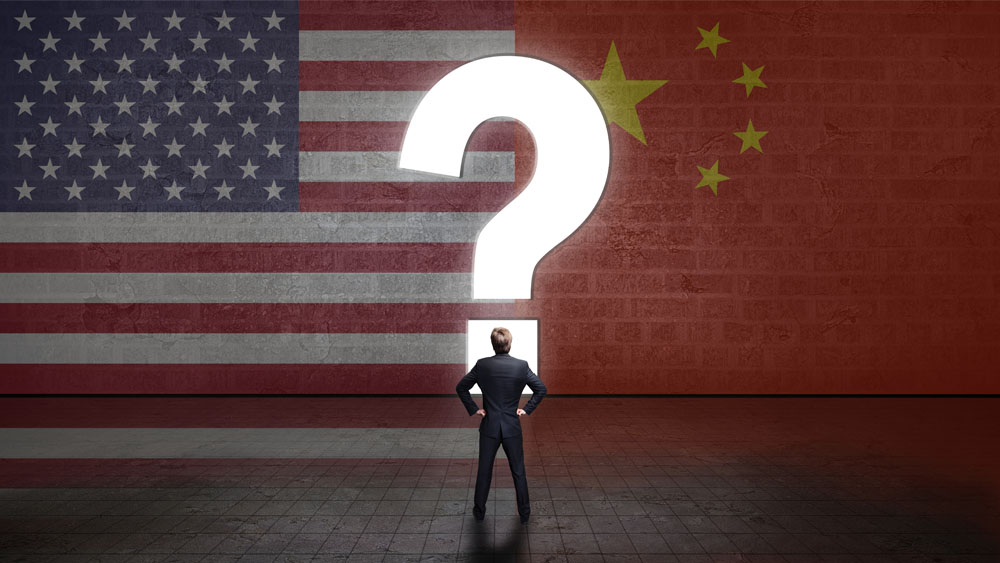
With the outcome of the US presidential election now established and a Biden administration entering the White House in January, many around the world wonder how this will impact Sino-American relations?
As an American I do not know exactly what the Chinese government will do, but I would anticipate three things (beyond the obligatory congratulatory phone call between President Xi Jinping and the president-elect). The first is that I would expect Beijing to be reactive to what the new Biden administration says and does. China’s leadership will likely sit back, watch, listen, and probe. Relatedly, the second anticipated step would be to dispatch a high-level emissary to Washington before or after the January 20 inauguration (likely Politburo member and foreign policy czar Yang Jiechi, who is also China’s leading America hand) to probe the new team’s disposition concerning China. The Chinese embassy is already beating the bushes to try and gather early readings on likely policies and personnel. Third, Beijing will likely restate its traditional position that cooperation is the only rational basis for the relationship, and it may well float some kind of new slogan (kouhao) which it would like Washington to adopt to characterize ties.
For its part, it will be interesting to see what kind of early signals the incoming Biden team seeks to send to Beijing. Would they be willing to receive such a Chinese emissary? Or might Biden dispatch his own aides to Beijing (doubtful). Will they issue a statement setting terms and establishing expectations for the relationship going forward? What will Biden say to Xi when he takes the congratulatory phone call? How would the Biden team react to a newly proposed Chinese slogan to characterize the relationship? Importantly, who would the new administration look to bring aboard to manage relations with China, and what are their dispositions about China?
These and other questions arise in the immediate aftermath of the election.
Some observers on both sides are looking for—and anticipate—a “reset” in relations that lowers the combative temperature and returns to a relationship predominantly characterized by cooperation and “engagement.” Such a full reset is not likely. It can be expected that the Biden administration will likely recalibrate many of the tactics for managing its interactions towards China—both bilaterally and multilaterally—but the underlying systemic sources of strain and countless divisive issues in dispute will remain.
The differences between the two sides run deep and cannot be changed with the wave of a magic wand. Agency is important, however, and the tone that the new administration sets from the outset could stabilize the wild fluctuations experienced as a result of Trump’s four years of unpredictability and capriciousness. Simply reestablishing a businesslike and consistent tone will exert a steadying influence on the relationship. The Trump administration has been highly combative and explicitly confrontational towards Beijing, especially over the past six months, but one can reasonably expect that approach to be scaled back under Biden in favor of a more measured—but still very toughminded—approach.
The new administration will also require time to think through and recalibrate the various complex and complicated dimensions of a new China policy, and to get new officials responsible for Asia and China in place (some requiring Senate confirmation). This could take months—and Beijing would be well advised to just sit tight and wait until this process is complete. If China seeks to push the new administration in any way—including seeking to send an emissary prematurely—it could have a very negative impact and could well alienate the new administration. In past transitions of American administrations, Beijing has sought to move quickly to establish lines of communication with the incoming team and the president himself. This time around Beijing could well overplay its hand and make a mistake by attempting to do so.
Beijing is best advised to reflect deeply on why relations have deteriorated so severely and what China’s own actions have done to contribute to the downslide. There remains a broad and deep bipartisan consensus across the United States, including in the divided Congress, over China policy and the need to “get tough” with Beijing. That has not changed with the election.
The only potential differences I foresee will likely be four. First, a change in tone and coherence is likely whereby the president and his administration will have coherence and continuity of messaging– even if it remains a tough tone. Gone will be the days when Trump says one thing and his administration does another. Second, Washington will work much more actively and in tandem with allies and a wide range of countries to push back against China’s malign behavior. Third, the prioritization and sequencing of issues of concern will likely change—trade will no longer dominate Washington’s list of concerns and there will be a more variegated agenda that restores values to a central place. Fourth, there will be some discrete policy areas—notably climate change, non-proliferation (Iran and North Korea), and global public health—where Washington will look for active cooperation with Beijing.
Time will tell how China’s government and the new Biden administration begin to interact with each other, and how the most important relationship in the world will unfold, but it will not be a replay of the past four years.
